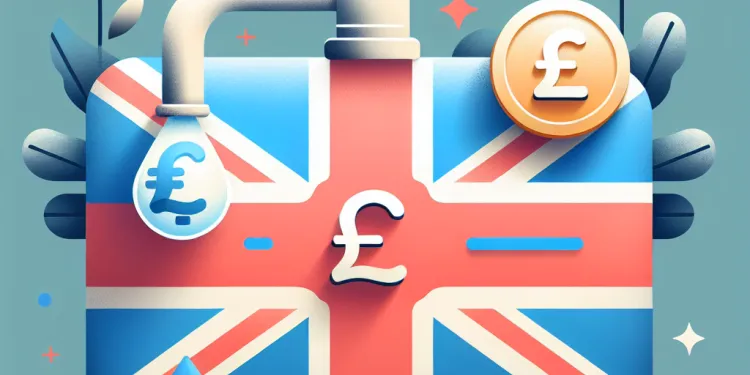
Find Help
More Items From Ergsy search
-

Who regulates the performance and compliance of UK water companies?
Relevance: 100%
-
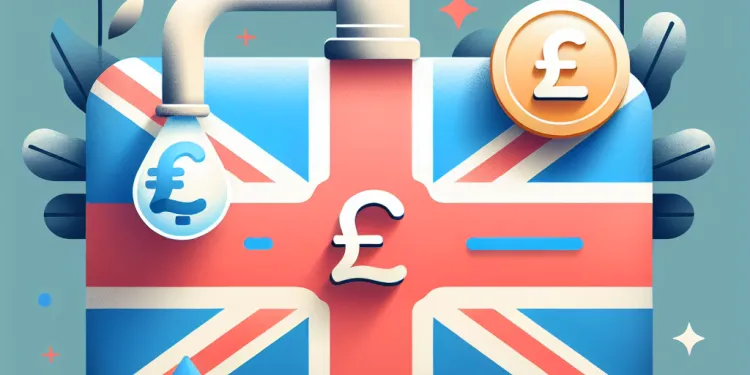
Who regulates water companies in the UK?
Relevance: 86%
-

Are water companies responsible for maintaining water infrastructure in the UK?
Relevance: 82%
-

What is the role of a water regulator in my claim?
Relevance: 82%
-

Are there penalties for water companies besides issuing refunds?
Relevance: 76%
-
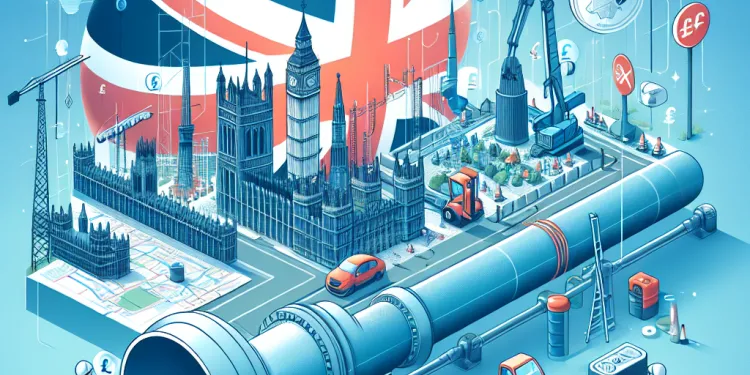
Do water companies have to update the infrastructure?
Relevance: 75%
-

Are water companies responsible to maintain and update infrastructure in the UK?
Relevance: 75%
-
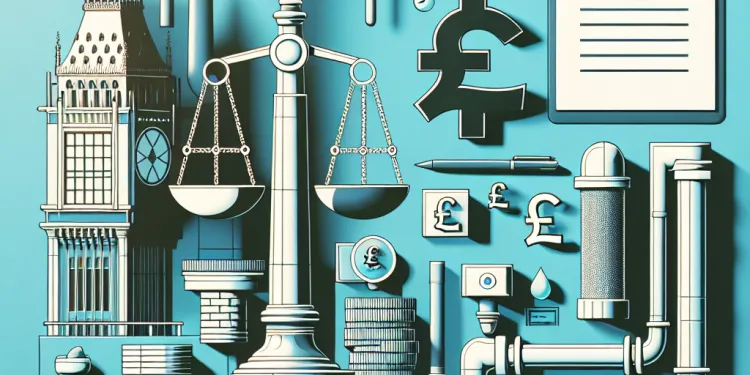
Which body is responsible for enforcing refunds by UK water companies?
Relevance: 74%
-
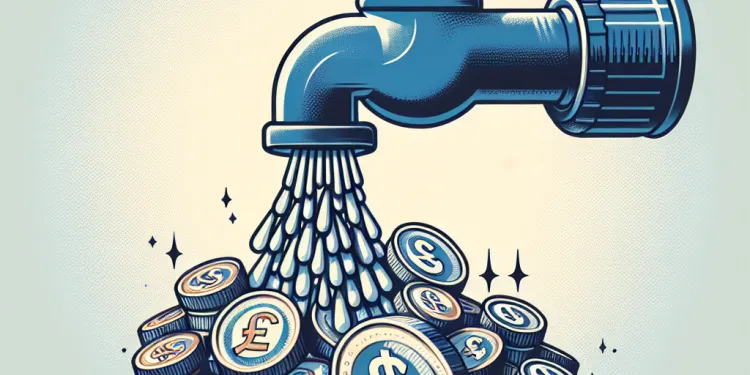
How much is being refunded in total by the UK water companies?
Relevance: 73%
-

Which UK water companies are going to refund their customers?
Relevance: 73%
-

What role do water companies play in sewage pollution?
Relevance: 72%
-

Do water companies have long-term infrastructure plans?
Relevance: 72%
-

How transparent are water companies regarding infrastructure improvements?
Relevance: 72%
-

When will the refunds be issued by the UK water companies?
Relevance: 72%
-

How many UK water companies are involved in the refund process?
Relevance: 70%
-

Do these refunds mean water companies have increased their rates fraudulently?
Relevance: 70%
-

How are infrastructure priorities determined by water companies?
Relevance: 70%
-

How do water companies fund infrastructure updates?
Relevance: 69%
-

What can I do if the water company doesn’t respond to my claim?
Relevance: 69%
-

Which UK water companies are going to refund their customers for poor performance?
Relevance: 69%
-

How do water companies detect leaks?
Relevance: 67%
-

How can I claim money back from my water company?
Relevance: 66%
-
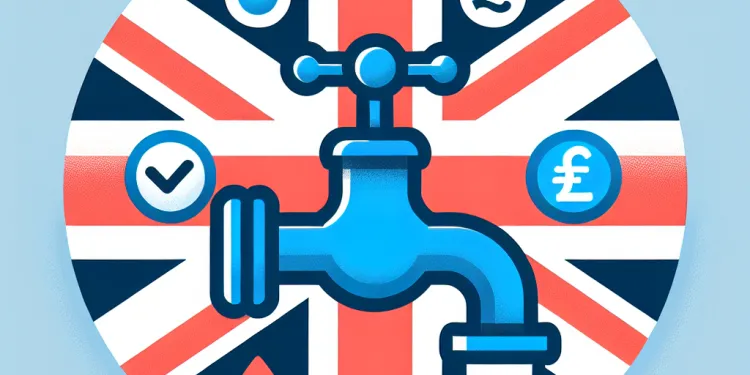
What criteria were used to determine the refunds for UK water companies?
Relevance: 66%
-
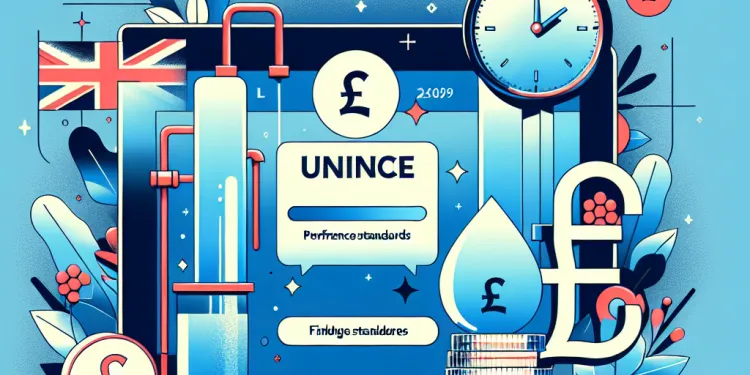
Where can customers find updates on their water company's performance standards?
Relevance: 66%
-
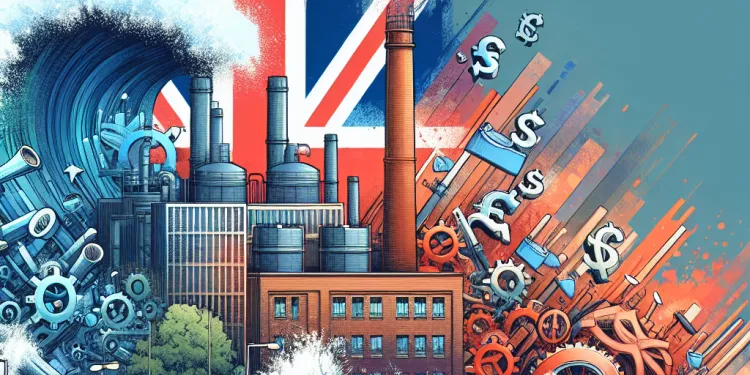
Can water companies enter my property to enforce a hosepipe ban?
Relevance: 66%
-
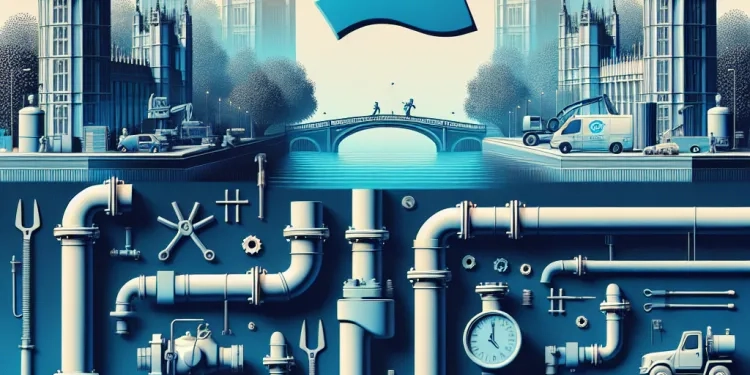
What challenges do water companies face in maintaining infrastructure?
Relevance: 66%
-

Can customers appeal or discuss the refund amount with their water company?
Relevance: 65%
-

What is the first step to claim money back from my water company?
Relevance: 60%
-

What agencies monitor and regulate sewage pollution in the UK?
Relevance: 60%
-
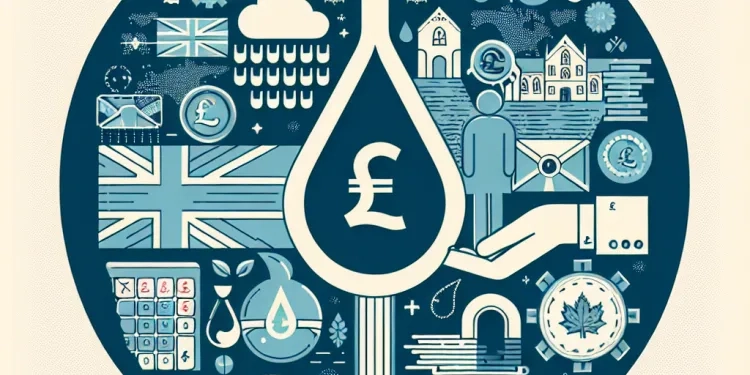
Are there any government initiatives to tackle water loss in the UK?
Relevance: 55%
-

Will all customers of these UK water companies receive refunds?
Relevance: 54%
-
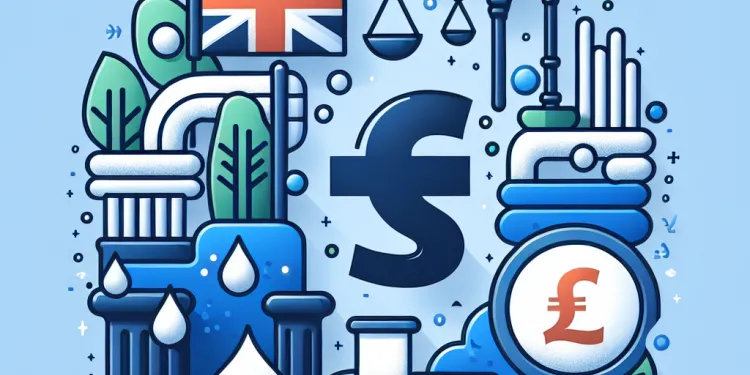
Are there legal guidelines for sewage discharge into UK waters?
Relevance: 53%
-

How are water companies held accountable for infrastructure maintenance?
Relevance: 53%
-
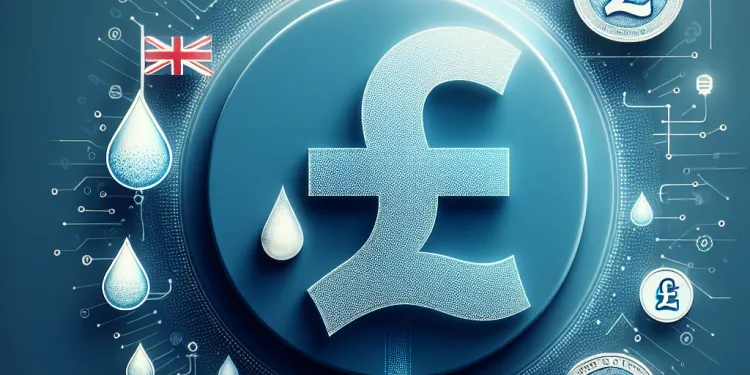
What are the financial implications of water loss for the UK?
Relevance: 53%
-
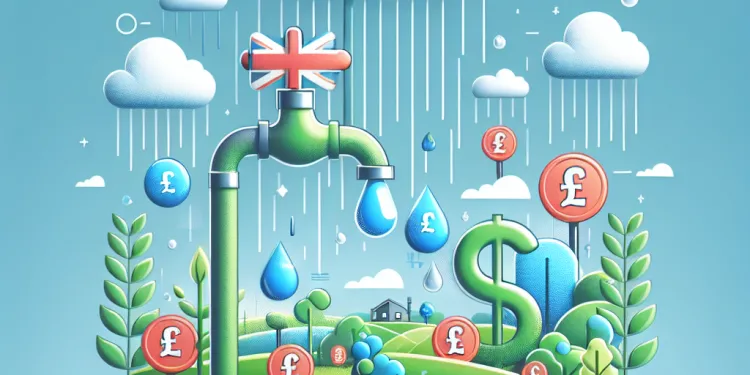
What causes water loss in the UK?
Relevance: 52%
-
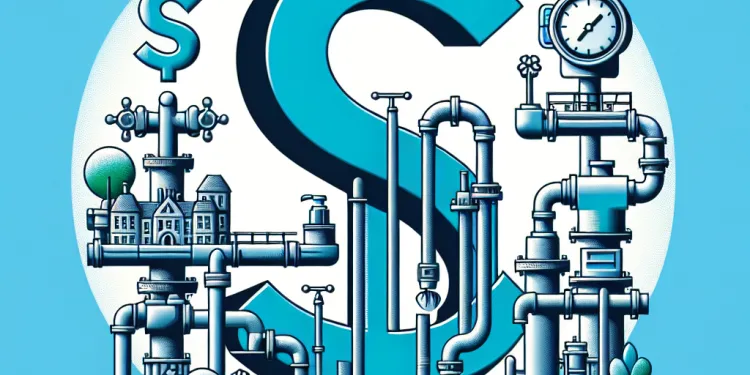
Are there penalties for not maintaining water infrastructure?
Relevance: 52%
-

What measures are being taken to address water loss in the UK?
Relevance: 51%
-

How significant is the water loss problem in the UK?
Relevance: 49%
-
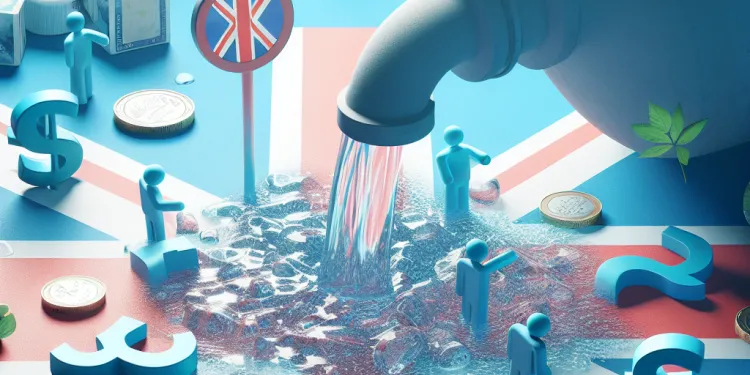
How much water is lost in the UK through poor infrastructure?
Relevance: 49%
-

Can I use a watering can during a hosepipe ban?
Relevance: 48%
Introduction to Water Regulation in the UK
Water regulation in the UK is a crucial aspect of maintaining the quality and availability of water services. The industry is regulated by several key organisations, each responsible for different aspects of water management, including quality, environmental impact, and economic regulation. This ensures that water companies provide reliable services while protecting the environment and keeping consumer costs reasonable.
The Role of Ofwat
Ofwat, the Water Services Regulation Authority, is the primary economic regulator of the water and sewerage sectors in England and Wales. It oversees pricing structures, ensuring that companies provide value for money to consumers. Ofwat also promotes competition and innovation within the industry. It sets price controls every five years, balancing the needs of consumers with company viability and environmental sustainability. This regulatory framework ensures that companies remain incentivized to improve efficiency and service quality.
Environmental Oversight by the Environment Agency
The Environment Agency plays a pivotal role in regulating the environmental impacts of water companies in England. It ensures they comply with environmental legislation, manage water resources sustainably, and minimize pollution from sewage treatment processes. In Wales, Natural Resources Wales serves a similar function. These agencies work to protect ecosystems, maintain river and groundwater quality, and ensure sustainable water use, which is vital for both public health and biodiversity.
Drinking Water Quality and the Drinking Water Inspectorate
The Drinking Water Inspectorate (DWI) is responsible for ensuring the quality of drinking water in England and Wales. It enforces standards that water companies must meet, conducts rigorous inspections, and provides guidance on maintaining high-quality water supplies. The DWI has the authority to prosecute companies that fail to meet the required drinking water standards, thereby safeguarding public health. Similar responsibilities in Scotland fall to the Drinking Water Quality Regulator for Scotland, and the Drinking Water Inspectorate in Northern Ireland performs equivalent duties.
Consumer Protection and the Role of CCW
CCW, formerly known as the Consumer Council for Water, represents the interests of water consumers in England and Wales. It provides a voice for consumers, helps resolve complaints, and influences policy and regulation to better protect water users. By addressing customer concerns and advocating for consumer rights, CCW plays a vital role in ensuring water companies adhere to high service standards.
Conclusion
The regulation of water companies in the UK involves multiple agencies and regulatory bodies, each with distinct roles. Ofwat, the Environment Agency, the Drinking Water Inspectorate, and CCW work collectively to ensure that water services are economically viable, environmentally sustainable, and safe for consumers. This comprehensive regulatory framework contributes to maintaining high standards within the UK's water industry.
Introduction to Water Regulation in the UK
In the UK, we have rules to make sure water is clean and there is enough of it. Different groups check on water companies to make sure they are doing a good job. These groups look after the environment and make sure the water does not cost too much. This way, everyone can use water safely and affordably.
The Role of Ofwat
Ofwat is a team that checks how much water costs in England and Wales. They make sure we don't pay too much for water. Ofwat wants companies to be fair and smart. They help water companies get better and make new things. Every five years, Ofwat checks prices to make sure everyone is happy, and water companies are doing a good job.
Environmental Oversight by the Environment Agency
The Environment Agency looks after nature and water in England. They make sure water companies don't harm the environment. In Wales, another group called Natural Resources Wales does the same thing. These groups help keep rivers and water clean and safe for animals and people. They protect nature and help us have water for a long time.
Drinking Water Quality and the Drinking Water Inspectorate
The Drinking Water Inspectorate (DWI) checks if the water we drink is safe in England and Wales. They make rules for water companies to follow. If companies do not follow the rules, the DWI can take action against them. This keeps our drinking water safe. In Scotland and Northern Ireland, other groups do the same work to keep water safe to drink.
Consumer Protection and the Role of CCW
CCW is a group that talks for people who use water in England and Wales. They help if people have problems with their water supplies. CCW also tries to make rules better for everyone. They make sure water companies listen to people's needs and give good service.
Conclusion
In the UK, many groups work together to make sure we have good water service. Ofwat, the Environment Agency, the Drinking Water Inspectorate, and CCW all help look after our water. They make sure it is safe, good for nature, and fair in cost. This helps everyone have clean and safe water to use.
Frequently Asked Questions
Useful Links
This website offers general information and is not a substitute for professional advice.
Always seek guidance from qualified professionals.
If you have any medical concerns or need urgent help, contact a healthcare professional or emergency services immediately.
Some of this content was generated with AI assistance. We’ve done our best to keep it accurate, helpful, and human-friendly.
- Ergsy carfully checks the information in the videos we provide here.
- Videos shown by Youtube after a video has completed, have NOT been reviewed by ERGSY.
- To view, click the arrow in centre of video.
- Most of the videos you find here will have subtitles and/or closed captions available.
- You may need to turn these on, and choose your preferred language.
- Go to the video you'd like to watch.
- If closed captions (CC) are available, settings will be visible on the bottom right of the video player.
- To turn on Captions, click settings .
- To turn off Captions, click settings again.
More Items From Ergsy search
-

Who regulates the performance and compliance of UK water companies?
Relevance: 100%
-

Who regulates water companies in the UK?
Relevance: 86%
-

Are water companies responsible for maintaining water infrastructure in the UK?
Relevance: 82%
-

What is the role of a water regulator in my claim?
Relevance: 82%
-

Are there penalties for water companies besides issuing refunds?
Relevance: 76%
-

Do water companies have to update the infrastructure?
Relevance: 75%
-

Are water companies responsible to maintain and update infrastructure in the UK?
Relevance: 75%
-

Which body is responsible for enforcing refunds by UK water companies?
Relevance: 74%
-

How much is being refunded in total by the UK water companies?
Relevance: 73%
-

Which UK water companies are going to refund their customers?
Relevance: 73%
-

What role do water companies play in sewage pollution?
Relevance: 72%
-

Do water companies have long-term infrastructure plans?
Relevance: 72%
-

How transparent are water companies regarding infrastructure improvements?
Relevance: 72%
-

When will the refunds be issued by the UK water companies?
Relevance: 72%
-

How many UK water companies are involved in the refund process?
Relevance: 70%
-

Do these refunds mean water companies have increased their rates fraudulently?
Relevance: 70%
-

How are infrastructure priorities determined by water companies?
Relevance: 70%
-

How do water companies fund infrastructure updates?
Relevance: 69%
-

What can I do if the water company doesn’t respond to my claim?
Relevance: 69%
-

Which UK water companies are going to refund their customers for poor performance?
Relevance: 69%
-

How do water companies detect leaks?
Relevance: 67%
-

How can I claim money back from my water company?
Relevance: 66%
-

What criteria were used to determine the refunds for UK water companies?
Relevance: 66%
-

Where can customers find updates on their water company's performance standards?
Relevance: 66%
-

Can water companies enter my property to enforce a hosepipe ban?
Relevance: 66%
-

What challenges do water companies face in maintaining infrastructure?
Relevance: 66%
-

Can customers appeal or discuss the refund amount with their water company?
Relevance: 65%
-

What is the first step to claim money back from my water company?
Relevance: 60%
-

What agencies monitor and regulate sewage pollution in the UK?
Relevance: 60%
-

Are there any government initiatives to tackle water loss in the UK?
Relevance: 55%
-

Will all customers of these UK water companies receive refunds?
Relevance: 54%
-

Are there legal guidelines for sewage discharge into UK waters?
Relevance: 53%
-

How are water companies held accountable for infrastructure maintenance?
Relevance: 53%
-

What are the financial implications of water loss for the UK?
Relevance: 53%
-

What causes water loss in the UK?
Relevance: 52%
-

Are there penalties for not maintaining water infrastructure?
Relevance: 52%
-

What measures are being taken to address water loss in the UK?
Relevance: 51%
-

How significant is the water loss problem in the UK?
Relevance: 49%
-

How much water is lost in the UK through poor infrastructure?
Relevance: 49%
-

Can I use a watering can during a hosepipe ban?
Relevance: 48%


